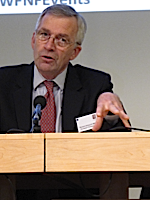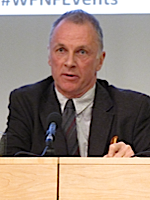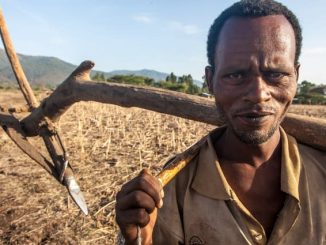
Conservative agriculture spokesman Richard Ashworth MP gave a robustly unvarnished Tory view when he spoke about the current CAP outlook at the Westminster Food and Nutrition Forum last week. “The Commission’s documents are not tablets of stone,” he said of the European Commission’s proposals package, adding: “EU spending priorities are not looking good.”
“Ten member states have already asked to freeze the CAP budget at 2013 levels,” he warned. The CAP budget requires unanimity, he explained, adding that he knew of at least one member state that would use its veto over key issues. He predicted that CAP negotiations faced a “…diplomatic car crash…” some time in 2013.
The EU’s position as the world’s largest food importer is significant. “We [the EU] import the equivalent of 35 million hectares of food production every year,” Ashworth later confirmed.
“The public will see the rising cost of food but will not understand the Commission’s response.” The Commissions’ current proposals, by his own admission not set in stone, would “bring in more complexity” and a “15% increase in administration costs.”
Looking ahead, Ashworth predicted that: “I just don’t see a 2012 decision, probably 2013.” In the absence of a CAP budget agreement, the Commission has an emergency month by month twelfths procedure, he added.
The UK has a climate that, for the foreseeable future, would allow food production to be increased, Ashworth argued.
Meanwhile, a number of green views were also heard at the Forum. “Public support for farming is genuine, providing farms manage the environment better,” says David Baldock, executive director of the Institute of European Environmental Policy (IEEP). “This is not a blank cheque,” he adds.
There are problems however, when attempting to dismantle a centrally-funded Pillar I and depend more on the voluntary co-funded Pillar II.
RSPB Scotland’s head of land use policy Vicki Swales demonstrated the Scottish problem with the high proportion of CAP funding going intointensive lowland farming while the country’s vulnerable High Natural Value land is to be found in the Highlands. Pillar II funding, historically modest in the UK, faces competition from a political appetite for research programmes that are likely to take the wind from the sails of environmental measures and rural development.






